It’s giving “you may be fucked but at least you’re somebody…”
It was 13:36 PST, July 10th, and there’s a Full Moon in Capricorn
Hey F@ggots,
Can I take a minute to say “what the fuck is my life right now?” Two weeks ago, I get a phone call from a friend asking if I’m available for a lil’ gig. I said yes and kept it pushing. Suddenly, my inbox was filled with sheet music, a blank W-4, two NDAs, and a confidentiality agreement. Now, as a former media-approved employee of the Mickey Mouse Clubhouse, I knew the last three docs meant I was singing backups for somebody famous. But the question was who?
Josh fucking Groban, bitch. That’s who. Every baritone with tenor tendencies (Hi!) adores the man and rightfully so. I was hoping, praying that he would be as warm and soft and dreamy and feathery as his voice. And guess what? He was. Such a personable and endearing person. In the evening’s set, my new best friend performed a Sondheim Medley featuring “Children Will Listen” from Into the Woods and “Not While I’m Around” from Sweeney Todd. Hearing him croon both tunes——favorites from Thee Canon——left me feeling particularly held. “Wishes come true, not free” and “No one’s gonna hurt you, no one’s gonna dare . . . Not while I’m around” were two lyrics that really encouraged some water works.
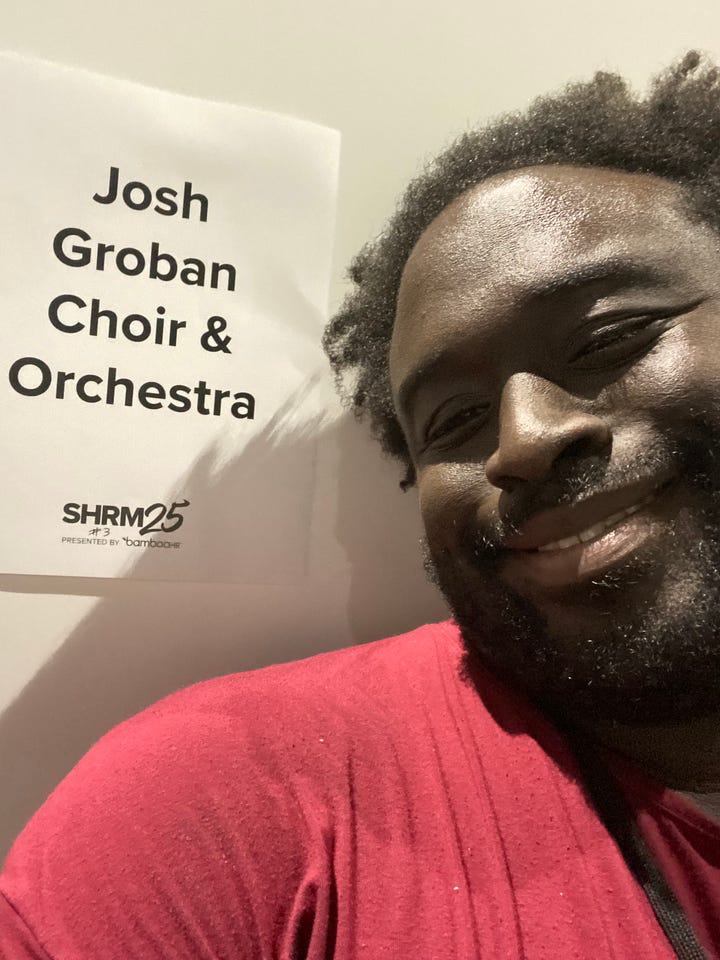



But, honestly, the best part was getting to do it with my friends. Loneliness and melancholy, my eternal ball and chain, deeply inform my creative praxis. (Centuries ago, I abandoned the Pianist’s Path because, at the time, for me, the road felt too insular.) Now, I pursue music (chorales, vocal pedagogy, singing ensembles, music direction, etc.) because music asks us to listen intently, share mindfully, and build compassionately which is just another way of saying build with what we share. Again, the opportune words are us and we.
In world where there’s so much noise, I love that I learn and make music with the people I love.
Sincerely,
E.Y. Patriceanne Washington
Bookslut Caught in the White and Wicked Wild:
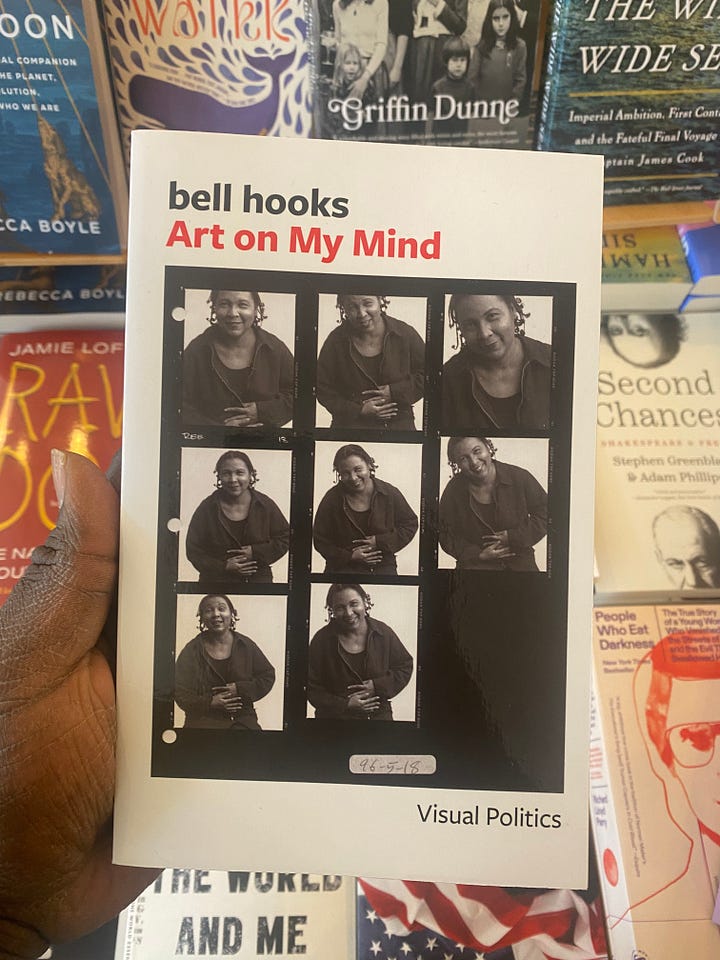
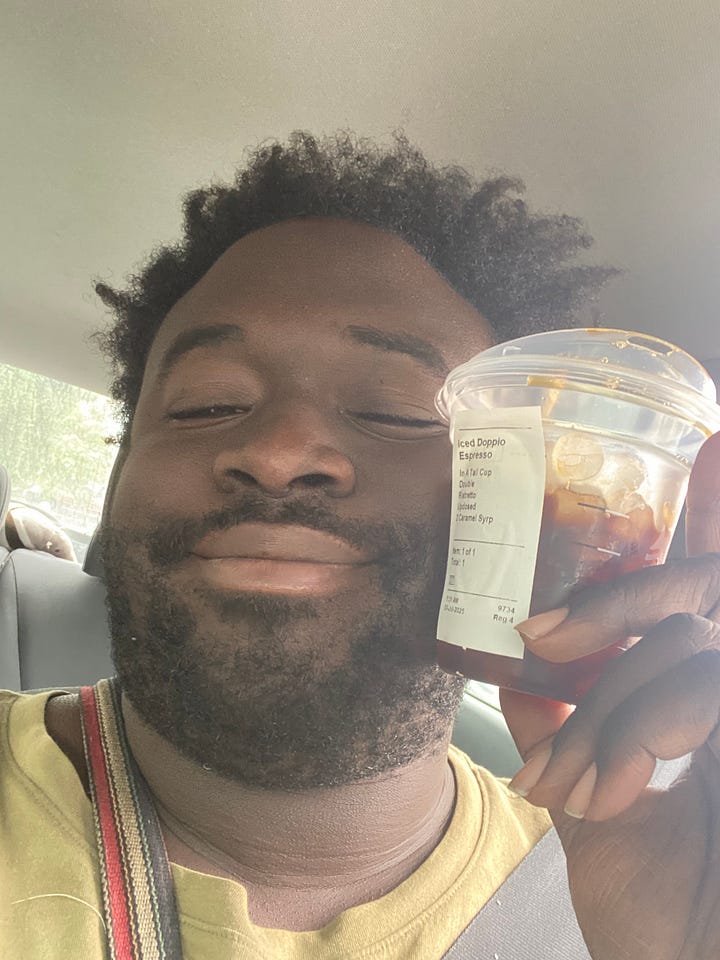
A few days ago, I started reading bell hooks’ Art On My Mind. Her essay collection features gems like “In Our Glory: Photography and Black Life,” “Diasporic Landscapes of Longings,” and many more. I was moved by “Being the Subject of Art.” There, hooks busies themselves with the complicated relationship between the perceived and the perceived.
Last month, a couple of art buddies and I visited a local nude beach. We bathed, frolicked, chuckled, and clucked for a majority of the day. There, my jennies sun-kissed and asunder, I made a new friend. Let’s call him D.
“Yes,” I said. D had asked if he could draw me as I read. My quick response took me by surprise. Like everyone, I too have a complicated relationship with my body. Unlike everyone, I am learning to hold my complications well. I pulled out Imani Perry’s book began my slow trot to the end. D’s scrawling accompanied my reading, the waves accompanied his drawing. What an uncanny moment. Last time I sat for an artist, I was treated with kindness and decency. This time was no different. And yet, the last time I was drawn, I climbed back into my car and burst into tears after we were done. Like everyone, I too have a complicated relationship with being perceived.
(Take yesterday for instance. After telling a student that I didn’t grow up eating the candy they have now, they asked if I grew up eating rocks. But I digress.)
Perception, more often than not, is larceny.
(I walked into a boutique store a few days ago, strolled the aisles enchanted by their wares, and the squinty-eyed clerk followed me around until I left.)
Seeing is tricky business. Your perception might just turn you into a larcenist.
(Honestly, I take umbrage with the property-over-people mentality that plagues the white inheritors of slavery’s consequences. And so, as I left the shop, I wrote the clerk a prescription to make him well. By tripping over a poorly placed display thereby causing a ruckus and puddle of property damage, I provided him an opportunity to correct himself. And guess what? He did . . . kinda. Capitalist anxiety snapped him out of his racist daze instantaneously. People-over-property, bitch. But I digress.)
Unlike evil little shop owners, D wasn’t perceiving me as a threat and treating me as such. He wasn’t robbing me of my minded business or humanity. I was held by his gaze, made more human because of it. What a dream perception can be.
(Yes, I’m seeing a therapist. No, I do not lie to my therapist. Yes, I told them about the boutique exchange. No, I’m not telling you their response. All you need to know is this: well behaved women rarely make history and a black woman’s work is never done.)
Books with Pictures, Books with Words, Books that Caught My Attention:
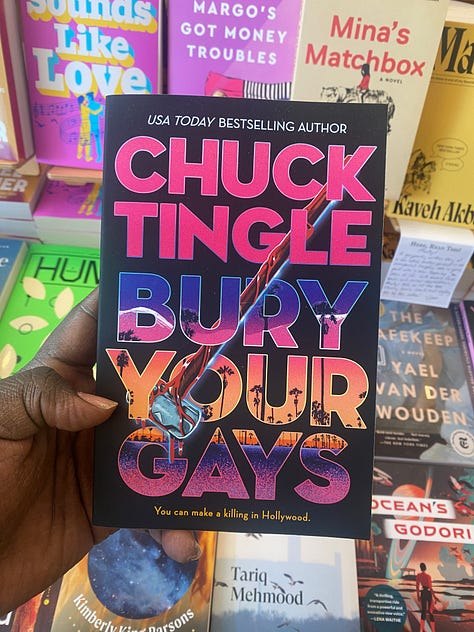
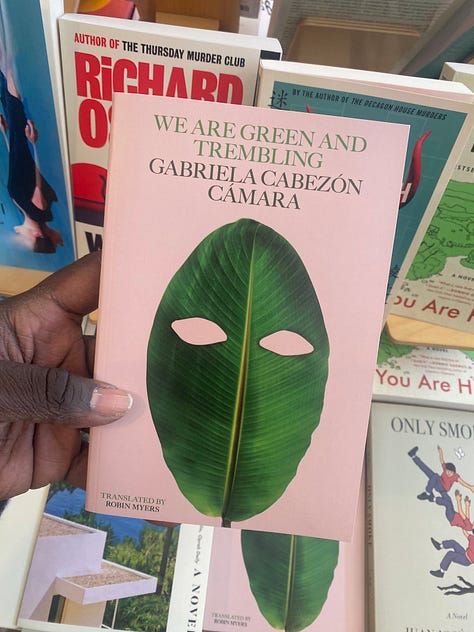
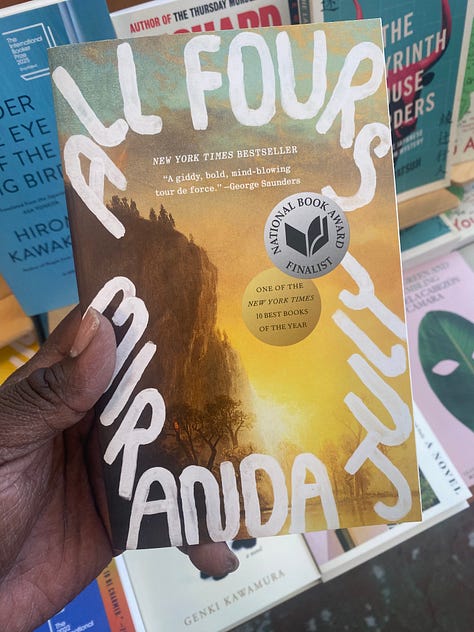
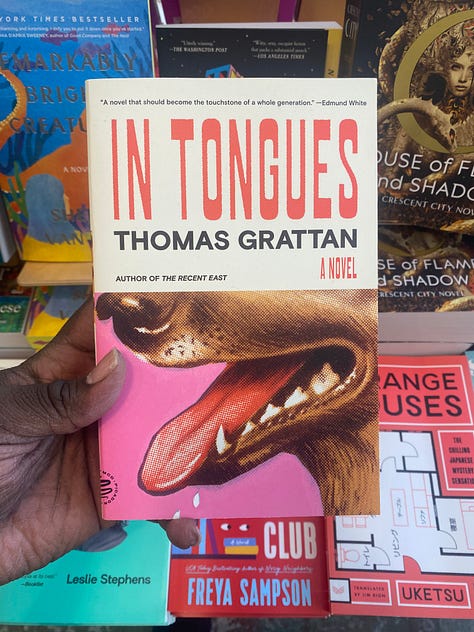
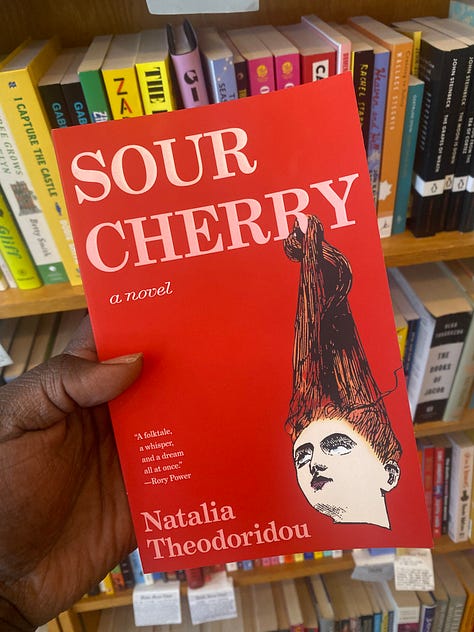
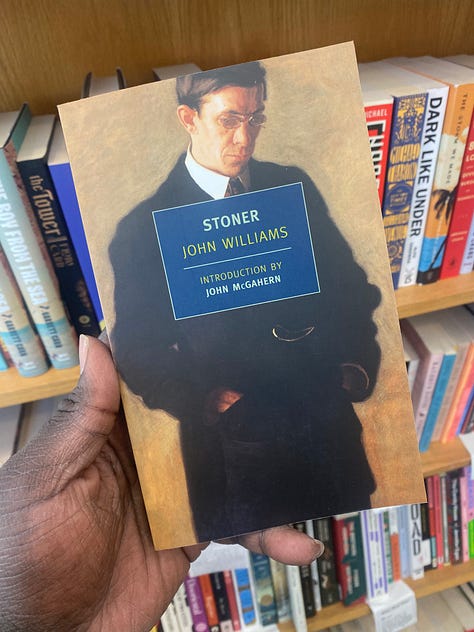
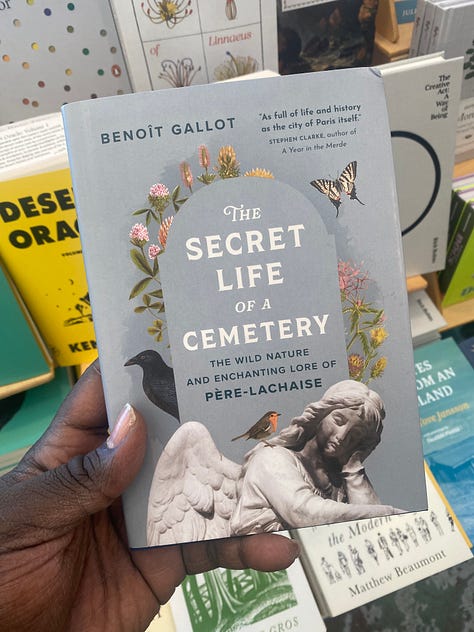

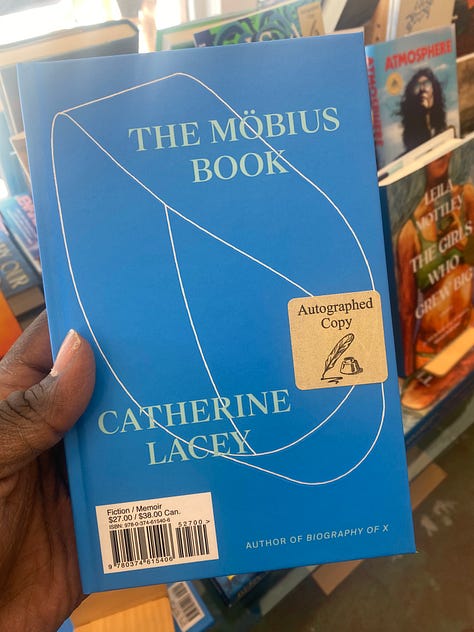
Notes: Two words. bell hooks. Enjoy.
Being The Subject of Art
by bell hooks
To transgress I must move past boundaries, I must push against to go forward. Nothing changes in the world if no one is willing to make this movement. Everyone I know talks about border crossing these days, as though it were a simple matter not to stay in one's place, not to stand still. All this talk does nothing to change the reality that there are so many barriers blocking the paths that would lead us to any space of fulfillment that it is impossible to go forward if one lacks the will to transgress. And yet most of us seem to carry this will. It comes to us early in life, when we are really little beings and just learning a relationship to space. And we are taught over and over again that the only way to remain safe is to stay within fixed boundaries. Most often it's the boundary of family, community, nation. Before we face even these boundaries, it is the body that is the first site of limitation.
The body is the boundary most of us are unable to move against to recover the dimensions of self lost in the process by which we are made to behold to fixed locations, by which we are bound in conformity against our will in many facets of our daily lives. The fact that the word transgress appears most often in discussions of the sexual is an indication that the body is the fundamental boundary of self. To transgress we must return to the body.
To return to my body I must be willing to face indetermi-nacy, contingency, the reality of dying. The body has its limits. To know death is to transgress. It is to violate the taboo understanding that death is the subject we cannot speak of, the closeted possibility, that which is shut away and not remembered — the location of one's desire. When I learn to look at death, to see someone dying and not turn away, I am a young girl living in a moment of transgression. I am a witness. To be intimate with my body I must like to be close to death. I must be willing to tell what I've seen. I must bear witness. I must transgress.
The discourses of death and dying, unlike the discourse of sexuality, do not lay claim to the word transgress. Though never spoken, death is the silent witness, waiting to see if any of us want to live fully, want to be so fiercely alive that we will not deny death. To refuse denial is to transgress. The politics of denial, like the culture of shame, keeps us in our place. Without fear of exposure, transgression might become an everyday action. Every moment someone might be willing to change something about themselves, the world they live in, if they were not so afraid of loss, of being confined to states of ongoing aloneness, states of nonrecognition. To recognize is to transgress. Withholding recognition strips us of our power to interrogate, to intervene on, to act. We are afraid of not being seen. We do not know the truth that to be seen and not known is the ultimate abandonment. We refuse to know each other. In pain there is also the possibility of connection. It is easy to dominate that which you see and never know. To want to know is to transgress.
Knowing my body and its limits, I am able to sacrifice belonging. If the fear of death is all that keeps us away from one another, then I willingly embrace death to reach you, to stand by your side. If you see me dying then you too are a witness. You have crossed the boundary. You transgress.
In transgression is the possibility of pleasure and danger, of redemption and violation. To transgress is to claim the right to choose. There is no one to blame, no need to regret.
I am moving against to move toward. Your body lying next to mine cannot remain silent. We speak to desire together— letting out the secrets and lies that keep us within fixed boundaries. Your body inside me violates the limits of flesh.
We cannot go any further. The only pleasure beyond this moment where the self can be lost in another is death. Someone, anybody, must remain alive to be the witness. To tell the truth is to transgress.




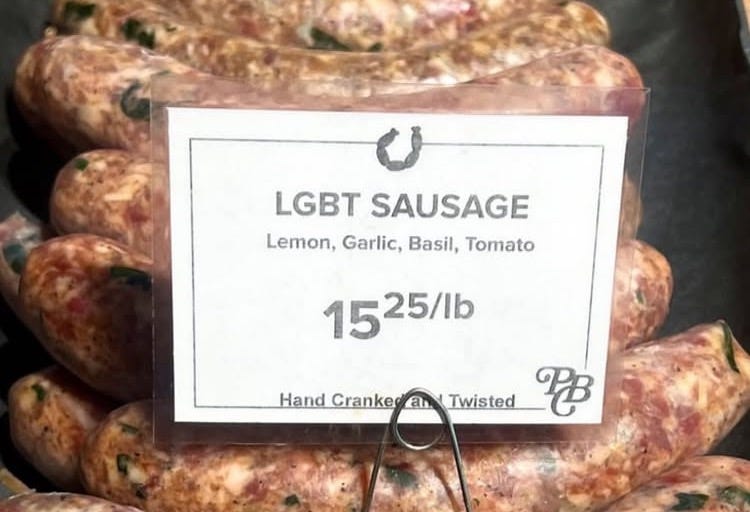

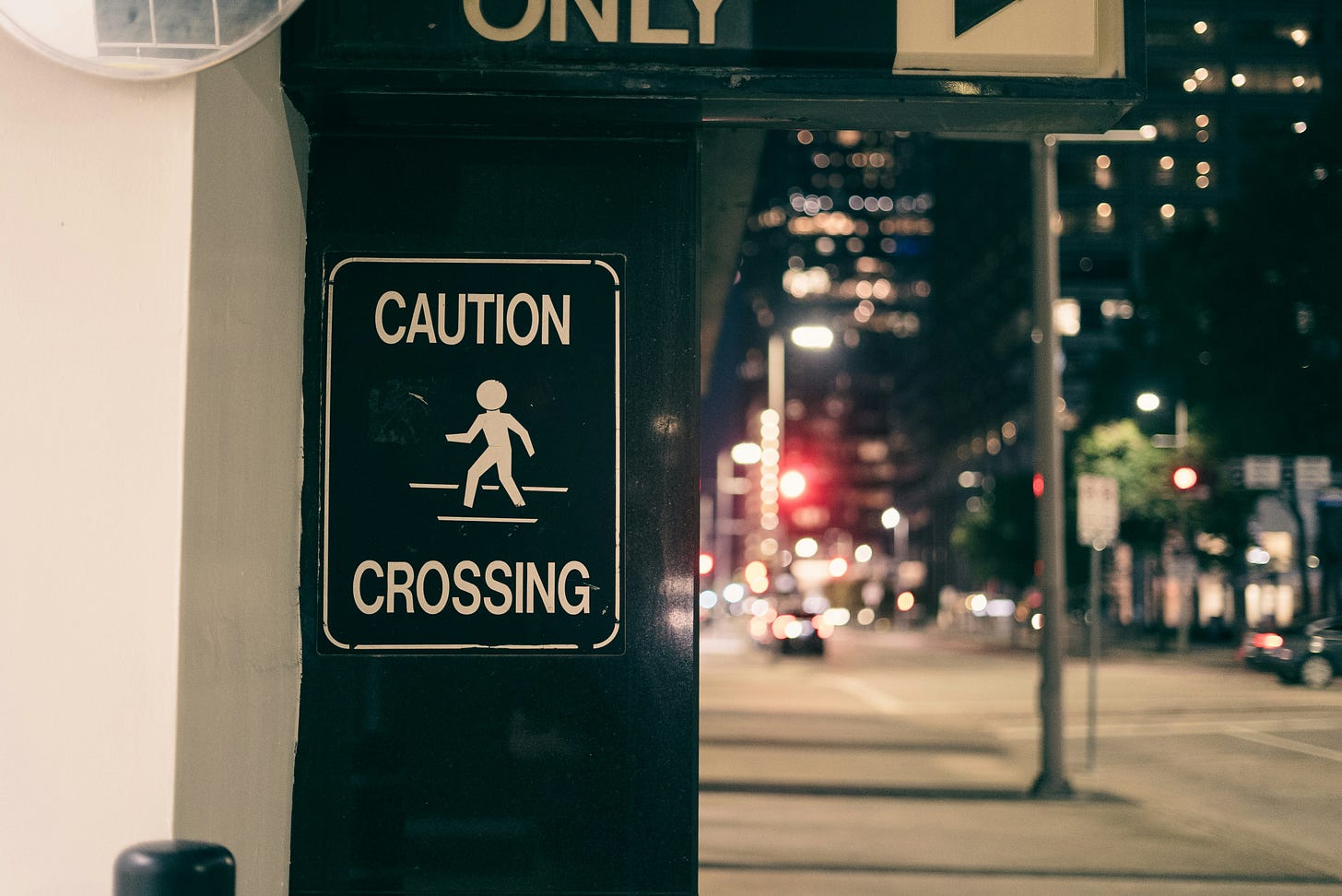
isn't it so delicious to be a muse? love u & hope more people make art with you at the center.